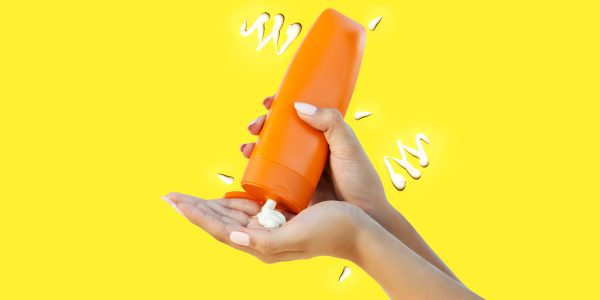How Long Does Sunscreen Last??
A sunscreen is a vital tool in our skincare arsenal, protecting our skin from the harmful effects of ultraviolet (UV) rays. But have you ever wondered how long sunscreen lasts when layered? Let’s explore its components and factors affecting sunscreen’s longevity.
Table of Contents
ToggleSunscreen and Its Components
Sunscreen works by either absorbing, reflecting, or scattering the sun’s UV radiation. Its effectiveness is primarily determined by its active ingredients, which fall into two categories: chemical and physical (mineral) filters.
Chemical filters, such as avobenzone and oxybenzone, absorb UV radiation and convert it into heat, while physical filters like zinc oxide and titanium dioxide form a protective barrier on the skin, reflecting and scattering UV rays away from the skin.
Factors Affecting Sunscreen Longevity
Several factors influence how long it lasts and its effectiveness:
1. Sunscreen Type and SPF: The Sun Protection Factor (SPF) indicates the level of protection against UVB rays. Higher-SPF sunscreens generally provide longer protection, but reapplication is still necessary.
2. Water and Sweat Resistance: Water-resistant sunscreens offer extended protection during swimming or sweating, but they still require reapplication after a certain period or after towel-drying.
3. Activity Level: Vigorous activities like swimming, exercising, or towel-drying can rub or wash away sunscreen, reducing its efficacy and necessitating reapplication.
4. Sun Exposure: Prolonged exposure to sunlight degrades sunscreen effectiveness over time. It’s crucial to reapply regularly, especially during extended outdoor activities.
5. Application Technique: Proper application ensures even coverage and maximum protection. Apply sunscreen generously, covering all exposed skin areas, and don’t forget about frequently missed spots like ears, neck, and hands.
Guidelines for Sunscreen Application and Reapplication
To maximize sunscreen effectiveness and protect your skin adequately, follow these guidelines:
1. Apply Generously: Use a liberal amount of sunscreen to cover all exposed skin, approximately one ounce (about a shot glass full) for the entire body.
2. Apply Early: Apply sunscreen at least 15 minutes before sun exposure to allow it to bind to the skin properly.
3. Reapply Regularly: Reapply sunscreen every two hours, or immediately after swimming, sweating heavily, or towel-drying, regardless of the sunscreen’s water resistance.
4. Seek Shade: Limit sun exposure during peak UV hours (10 a.m. to 4 p.m.) and seek shade whenever possible, even when using sunscreen.
5. Wear Protective Clothing: Pair sunscreen with other sun protection measures like wearing protective clothing, wide-brimmed hats, and sunglasses for comprehensive defense against UV rays.
Frequently Asked Question: How Long Does Sunscreen Last?
1. How long does sunscreen last on the skin?
The duration of its protection varies based on factors such as the SPF level, water resistance, activity level, and sun exposure. In general, it typically lasts for about two hours, but it may require more frequent reapplication during extended sun exposure or after swimming or sweating.
2. Does sunscreen expire?
Yes, it can expire. Most of them have an expiration date printed on the packaging, typically ranging from one to three years. Expired ones may lose their effectiveness and fail to provide adequate protection against UV radiation. It’s essential to check the expiration date and replace it as needed.
3. How often should sunscreen be reapplied?
Reapply every two hours, or more frequently if swimming, sweating heavily, or towel-drying.
4. Can I extend my longevity by applying a higher SPF?
While higher SPFs provide increased protection against UVB rays, they do not necessarily extend the duration of protection. Regardless of the SPF level, reapply regularly according to usage guidelines to ensure continuous protection against sun damage.
5. Do water-resistant ones last longer?
It offers extended protection during swimming or sweating, but it still requires regular reapplication.
6. What happens if I don’t reapply regularly?
Failing to reapply regularly increases the risk of sunburn, premature skin aging, and skin cancer. UV radiation can penetrate the skin and cause damage, even with a single instance of inadequate sun protection. Consistent reapplication is crucial for safeguarding skin health and preventing sun damage.
7. Can I rely solely on it for sun protection?
While it is an essential component of sun protection, it should not be relied upon as the sole method of sun protection. It’s essential to adopt a comprehensive approach by combining sunscreen with other sun protection measures, such as seeking shade, wearing protective clothing, hats, and sunglasses, to minimize UV exposure and maintain skin health.
8. Are there any tips for maximizing its effectiveness?
Yes! Ensure proper application by applying it generously to all exposed skin areas and reapplying regularly according to usage guidelines. Additionally, choose a broad-spectrum sunscreen with an SPF of 30 or higher, seek shade during peak sun hours, and wear protective clothing for comprehensive sun protection.
Conclusion
Understanding how long sunscreen lasts and the factors influencing its effectiveness is essential for maintaining healthy skin and preventing sun damage. By following proper application and reapplication practices, you can enjoy the sun safely while protecting your skin from harmful UV radiation. Remember, it is your skin’s best friend, so apply generously, reapply regularly, and enjoy the sunshine responsibly.


Leave a Reply